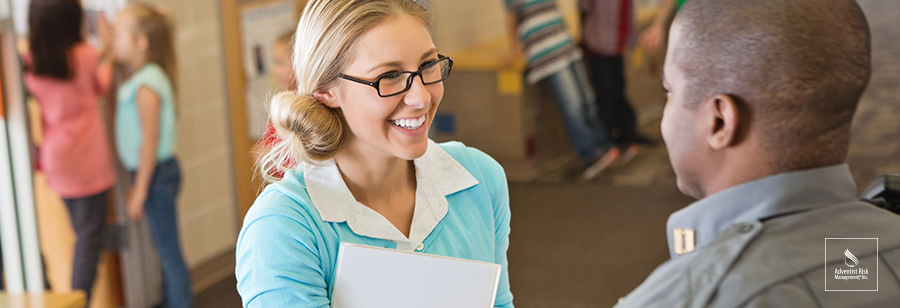As a ministry leader, you are responsible for the safety of all those who enter your building or participate in an event under your supervision.
It was a Sabbath evening when the weight of the responsibility hit me. Sixty Pathfinders surrounded me as they swarmed like bees communicating the source of nectar between campfires. I was one of the many staff supervisors who made sure no one caught fire, was poked with a flaming stick, or fell into the crackling flame. Suddenly, I felt the monumental pressure of making sure each child stayed safe.At first, I felt a bit panicked, and questions surfaced in my mind. Did we have enough staff supervising these children? Did we have a water source close by to put out a fire in case it got out of hand? Did we have a first aid kit and someone with medical training to treat potential injuries?
I quickly confirmed all of these precautions were in place. As the pressure lifted, I understood what any seasoned ministry leader knows: In order to be ready for emergencies, someone had to plan ahead.
Have you ever wished planning for emergencies was easier?
As a ministry leader, you are responsible for the safety of all those who enter your building or participate in an event under your supervision. If this is the first time you have created an emergency plan for a large group or facility, you may not know where to start. Fortunately, you have some friends close by who can help make emergency planning for your ministry easier.Local first responders, police officers, and firefighters help keep your community safe. They can also be a great asset in helping make the emergency planning process easier.
Local first responders can be a great asset in helping make the emergency planning process easier.
What can local police and fire departments do to make emergency planning easier?
Local police officers and firefighters can use their emergency response experience and training to help you plan the best way to protect your members during an emergency.Your local first responders may help you with:
- Identifying threats and creating an emergency plan to respond to them.
- Assisting your ministry with safety drills to practice how to respond to an emergency.
- Provide training for your emergency response team and members of your church, school, or Pathfinder Club.
What should I do before I invite my police and fire departments to visit?
Before inviting local first responders to your facility, make sure you have taken some basic steps to be ready. Inspect your facility using the Adventist Risk Management, Inc. inspection forms designed specifically for your ministry and correct any issues you find. Some specific items to be aware of include non-functioning smoke detectors, blocked exits, or out-of-date fire extinguishers.Download the ministry inspection form customized for your ministry.
Church: English | Spanish | French
School: English | Spanish | French
Camp: English | Spanish | French
Create copies of your building blueprints, current emergency plan, and emergency contact information. Sharing this documentation with your community safety partners allows them to know exactly where to go or who to contact when an emergency takes place.
Alert your members beforehand. If you are inviting local first responders when members will be present, such as during a school day or following a church service, it’s a good idea to let your members know they will be coming and tell them why so no one gets worried.


